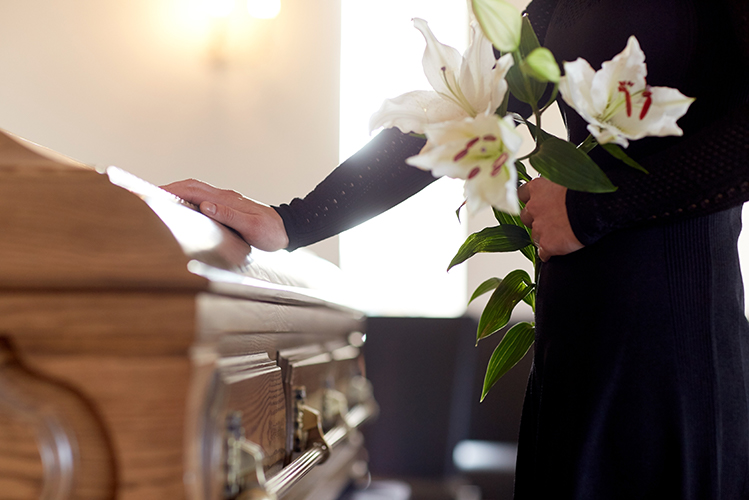
A funeral can be confusing for some, especially if you have never been to one before. With all the emotions running through you at the time, it is normal to feel a little nervous about attending the funeral. To help you feel a little more at ease, we have gathered a list of things that normally happen at a funeral. Hopefully, this list will help you be a little more prepared for the day.
-
Depending on the size of the guest list, parking may be a problem. Of course, funeral homes do their best to provide ample parking, but to be on the safe side, you should try to arrive around ten to fifteen minutes early.
-
There may be an open or closed casket viewing of the deceased. Many funerals offer the chance to walk by the open casket before the funeral to say goodbye to them one last time. If the deceased was cremated, the urn and a picture usually are at the front of the room.
-
Normally the funeral ceremony is officiated by someone, such as a funeral director, pastor, minister or another speaker. Some funerals may even have more than one officiant. It depends on which direction the family chooses.
-
Choosing a seat may seem to be a difficult task for some.Typically, the front row of seats are designated for the immediate family of the deceased. If you are not immediate family, you should choose a seat in the middle or the back of the room, whichever makes you feel more comfortable.
-
An order-of-service may be handed out at the funeral. These will detail the happenings during the ceremony, which will allow you to know what to expect. They will inform you of which prayers will be read, who will be speaking and when, which hymns will be sung and any other notable events in the service.
-
During the funeral ceremony, you may be asked to participate by praying, singing or sitting or standing. In celebration of life ceremonies, you may be asked to do different things to remember the deceased, such as sharing your memories of the deceased, releasing a balloon, sing their favorite song or even recite some of their favorite poetry. Celebration of life ceremonies will focus on the life not the death of the deceased; therefore, whatever brought them joy will be front and center.
-
It is fine to be emotional. Everyone grieves and shows emotion in their own way. You can expect people to cry during a funeral, and it is okay for you to cry during it too. Most funeral homes will have tissues available, but if you believe you may cry then I would bring some tissue along just in case.
-
The funeral officiant will make it clear when the funeral has come to an end. The funeral director and his staff will dismiss everyone. The family is usually the last to be dismissed and will be allowed some extra time to say goodbye to their loved one. It is proper for you to give them the extra time and space to do this. You may remain outside the ceremony’s location to meet with the family and offer your condolences.
-
Some funerals may continue to the burial site, and if you decide to go, you should remain with the cars of those from the funeral. The funeral staff can provide you with directions in case you get lost. Once at the burial site, there may be a short ceremony and the lowering of the casket. Once done, you can meet with the family once again to talk and say your goodbyes to them.
It does not matter if this is your first funeral ceremony or not. It is an emotional experience for everyone involved. Hopefully, the information above will help you feel a little less distraught during the ceremony.

















 Mortuary Coolers: Single-Body vs Multi-Body Units – Which One Do You Need?
Mortuary Coolers: Single-Body vs Multi-Body Units – Which One Do You Need?
 The Next Generation of Crematory Equipment: What’s Coming in 2026?
The Next Generation of Crematory Equipment: What’s Coming in 2026?
 The Role of Stair Stretchers in Telehealth Emergencies
The Role of Stair Stretchers in Telehealth Emergencies
 How Spineboard Innovation Is Enhancing Patient Safety in 2025
How Spineboard Innovation Is Enhancing Patient Safety in 2025
 How Telemedicine is Changing the Role of Medical Stretchers in Remote Care
How Telemedicine is Changing the Role of Medical Stretchers in Remote Care